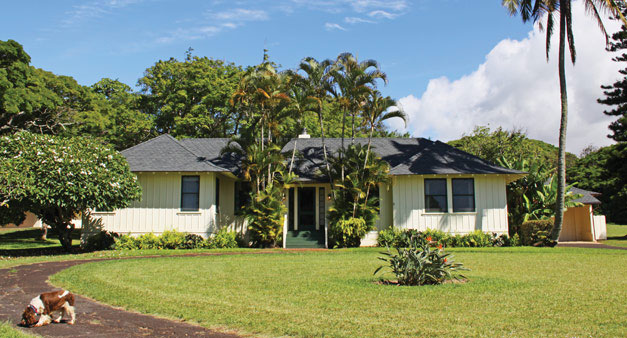The decision to invest in a property upcountry is one that has divided opinion with decisions hinging on the economics that come with such a development.
Simon Ng’ang’a, managing director of Granite Capital Kenya, a real estate agent, says that the decision to build a home or invest in any other property in the rural areas is a question of one’s disposable income.
He points out that most homes in rural areas are not built because of daily use but a societal expectation and so the value is more emotional and personal than economical.
“If you are renting where you work, it then beats the purpose to build in the rural areas where one visits only once in a while. It is important to look at new technologies that can build a very cost effective home if the necessity to have one is really big,” says Mr Ng’ang’a.
The real estate expert states that governments always tend to develop the urban areas first before going to the rural areas, which in essence translates to a longer time for one to unlock value in far-flung rural places.
This means that return on investment (ROI) for such properties grows over time as the area becomes more modernised.
To put it into perspective, the ROI for people that had invested in Maai Mahiu will be very high with all the infrastructure and development plans that the government has for the area.
“However, in most cases, people do not invest in the rural areas looking for capital appreciation. It is more of a personal fulfilment than a capital investment,” he says.
He explains that although labour costs are more often than not cheaper compared to urban areas, costs involved in putting up a property can sometimes be more expensive depending on the location due mostly to transportation expenses. This is in addition to the cost of connectivity for both water and electricity.
Mr Ng’ang’a points out that the biggest advantage of building in the rural areas is the personal satisfaction that comes with it as it is the traditional sign of success. However, without proper planning and limited cash flow, it can be an expensive affair and of no cost benefit to the person.
Dennis Kyellenge, a property consultant working with IFL Consult, disagrees and says that this is the best time to invest upcountry and one should buy or construct the property and in the coming years the returns will be higher as development catches up with the areas.
He says that one should consider the location to invest in, favouring places near already existing institutions and urban centres, as the values will shoot up sooner as more amenities are put up. In addition to speculative buying in terms of developments like infrastructure that will be put up.
The property consultant explains that based on the fact that there are devolved units in place and ultimately every county government will be looking to be independent in terms of service provision and centralisation of every service the central government provides, in not very long time there will be no need of people to travel to the capital.
“If I would invest right now, I would concentrate at the county level nearer to their capitals where opportunities are coming up. In Nairobi right now things are overrated and inflated because of the buzz in the real estate sector in the capital,” he says.
Mr Kyellenge points out that property boom in cities and big towns in the country has affected return on investment with new properties coming up every now and then and with new technologies, those who used older and expensive ones are being driven out of the market as they have to review their rates to compete.
“There are buildings coming up every day using maybe cheaper building technology cutting costs of putting up the development. This will mean that those who used the old and more expensive technology will have to charge lesser or review their rates downwards to stay in the market. This directly has an effect on return on investment,” he says.
He also states that political upheavals, mostly experienced in urban areas during every election cycle, also affects investment in those areas with the shaky political environment being an inconvenience, a factor which is rarely experienced in the upcountry as it more often than not enjoy steady political atmosphere
Kenyan Business Feed is the top Kenyan Business Blog. We share news from Kenya and across the region. To contact us with any alert, please email us to [email protected]











